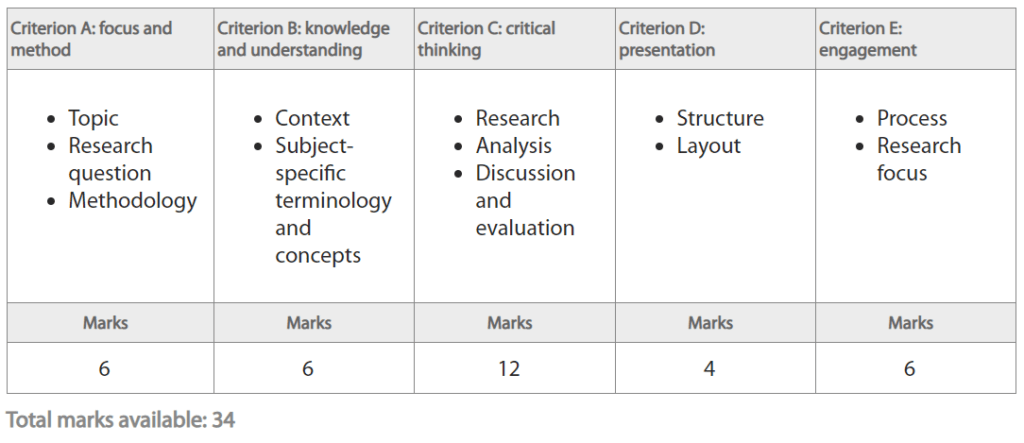EE REFLECTIONS - CRITERION E
The EE reflections are worth 6 marks and make-up 18% of your final EE grade.

Getting full marks in your reflections isn’t too difficult, and could boost your EE grade by a grade or more.
WORD COUNT OF THE RPPF
The RPPF should make up a total of 500 words, including all 3 reflections. It is recommended that you split the 500 words into:
- 150, 150, 200 words
- OR 120, 180, 200 words for reflections 1,2 and 3 respectively
Depending on which parts of the EE were most difficult and require more reflection on.
TOP TIPS:
- Tie in the IB learner profiles
- Show the IB marker that you’re a good IB student
- Show the IB marker that you’re a good IB student
- Try to tick as many of the IB ‘boxes’ as you can. Whoever is marking your EE is probably has a checklist of stuff to look out for in the reflections.
- Be honest. Loads of chem EEs are really difficult and laborious.
- Don’t say everything was good if it wasn’t. You’ll probably get extra marks for talking about what went wrong
- Check your reflections with your supervisor before they go off.
REFLECTION 1
Reflection 1 should focus on the initial stages of your EE:
- Brainstorming and developing ideas
- Why certain ideas were or weren’t chosen
- The preliminary research that was done on the topic
- What ideas you have for your next steps in terms of research
- Will you research more into methodology?
REFLECTION 2
Should focus on the process of writing the draft and what feedback you received from your supervisor.
- The preliminary trials and data collection
- What went wrong and how did you fix it?
- The writing of the report
- How did you structure and focus your essay?
- What did you find challenging?
- Are you happy
with your draft
- What important feedback did you get from your supervisor
- Only include this is if you have space, it’s not as important.
REFLECTION 3
A final reflection on the entire process. This reflection should be the biggest by far.
- What you learnt from the process
- Through what? e.g. I developed a strong work ethic after having to spend large amounts of time analysing data
- What went well
- What was challenging
- What did you enjoy
- (if anything)
- Things you found interesting
- This could be experimental methods, or cool new chemical theory you learnt
- How this could help you in the future?
- If you’re going into a sciency uni course and/or job, you can write about it
- Or how it helped you improve your time management or essay writing skills
